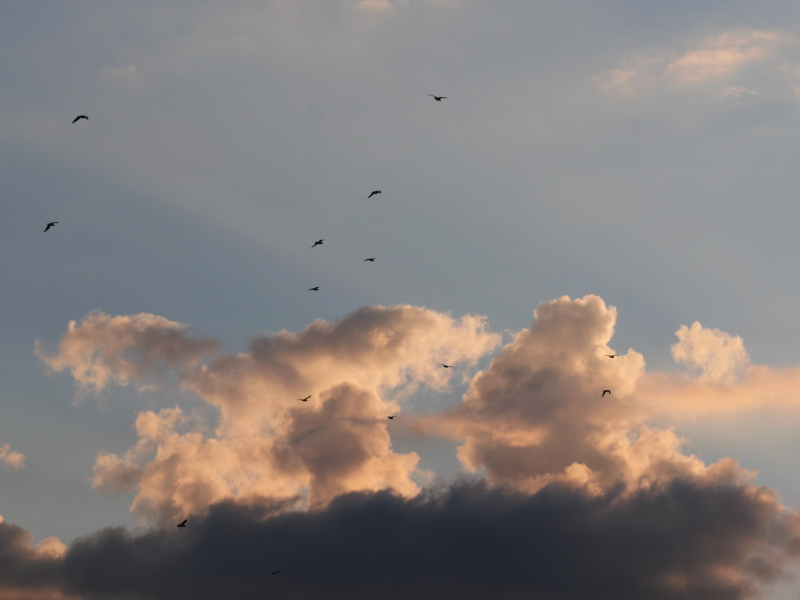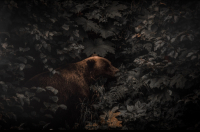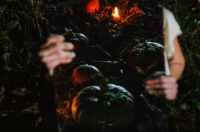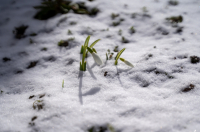Given the nature of migrating birds, which fly off to southern lands for winter and return in spring, it makes not only symbolic but also practical sense: if these warm-loving creatures have returned, then spring must truly be just around the corner.
Close contemplation of natural forces and creatures allowed people in ancient times to make certain conclusions, which in turn helped them predict the weather changes. Here are some examples of such omens:
-
If rooks migrate back early, the spring will be warm and the snow will completely melt in about a month. If they land on the ground and sit there – the cold will linger, if they return to their old nests – it’ll be consistently warm.
-
If woodcocks suddenly stop their courtship display – soon it’ll be cold or snowing again.
-
If a cuckoo starts to sing, there’ll be no frost anymore.
-
If a nightingale sings all night long, it’ll be a sunny day.
-
The return of wagtails was believed to be connected to the melting of ice on rivers: this bird was even nicknamed icebreaker.
-
If birds make their nests on the sunny side of trees and buildings, the summer will be cold (and vice versa).
Interestingly enough, those who lived in ancient times believed that birds not only predict but actually bring spring. That’s why they are the most significant figures, when it comes to spring omens. In Russian folklore, there is a legend that when birds come back from a far-off warm land, they bring keys to spring and give them to Perun, Slavic god of sky and storms, and he unlocks heaven, so that rains start and make the soil ready for planting.
This brings us to another aspect of such predictive bird-watching: knowing the weather was vital for agricultural works. Hence, many omens are about the connections between the natural world and human activities: for example, when swallows come back, it’s time to plant panicgrass.
Many others help predict if the harvest will be good this year. In this regard, among the lucky omens are: the return of different species of birds at the same time, cuckoos singing for the first time when the trees have already started to bloom, bitterns screaming at least 7 times in a row, and wild geese flying high. Otherwise, the harvest won’t be plentiful.
Speaking of spring-related traditions, tomorrow is Zhavoronki, one of the folk holidays that celebrates the yearly awakening of nature – we’ve covered it in this story.
The story is based on this article.




